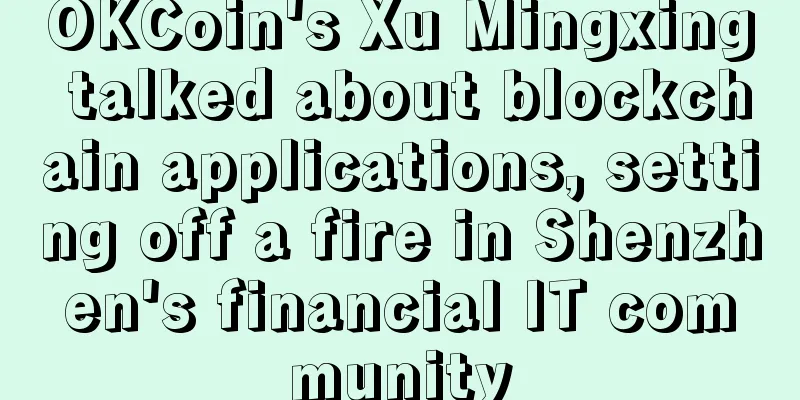Blockchain will revolutionize digital trading card games

|
Rage Review : A digital collectible card game will be launched in September this year. The assets in the game can not only serve as in-game bonuses and be used to purchase items, but can also be freely traded on the blockchain outside the game. A particularly attractive "asset" in SoG is Satoshi Nakamoto Cards, a card game invented by Satoshi Nakamoto, the mysterious anonymous founder of Bitcoin. Blockchain will bring a revolution to digital collectible card games by digitizing cards. Translation: Nicole When blockchain use cases became the main focus of developers interested in blockchain technology, games were not at the top of their list of blockchain use cases. However, the emerging technology - decentralized or distributed ledgers - is firmly at the heart of the next generation of digital trading card games (TCGs) revolution. Swiss mobile game developer EverdreamSoft is said to be preparing to innovate the TCG economy, adding blockchain technology to further promote the digitalization process. Revolution In September this year, the digital TCG: Spells of Genesis (SoG) will be fully launched, integrating blockchain technology into two aspects, one in the real world and the other in the game. The game’s storyline is built on collaboration between card game-related activities and the blockchain industry, while decentralized technology provides a network system for peer-to-peer interaction, thereby facilitating secure asset transactions. EverdreamSoft founder and CEO Shaban Shaame explained SoG that in-game assets are tied to the Bitcoin blockchain through Counterparty, the open-source distributed digital currency platform that underpins the Bitcoin network. Shaban Shaame Last August, the company launched a public presale of Counterparty assets to help finance development. These assets were introduced in the form of BitCrystals, which act as in-game bonuses for purchasing items, and can be freely traded on the blockchain outside of the game. Other functions after trial operation SoG is still in the testing phase, operating in the trial phase, and is currently undergoing its sixth revision. It can reward players with BCY based on their achievements in the game. Essentially, it rewards BCY based on the points on the leaderboard. According to game designer Jasper Damman, when the game is officially launched, it will continue to operate in this way, and other features will be added, such as creating levels and guilds. However, the testing period will last longer, about half a year, but rewards will still be given based on the leaderboard, and the game operations will revolve around a central fulcrum: the cards in the game will change with the seasons. In other words, a new batch of cards will take their place, Shaame explained, just like what happens in a real-life card game, increasing the value of older versions of cards based on the item's scarcity. “Right now we have true blockchain cards, which are sold only on the blockchain, but we also have off-chain cards, which are stored in our database — the in-game database — in the old-fashioned way,” Shaame said. One particularly intriguing “asset” in SoG is Satoshi Solitaire, a card game based on the invention of Satoshi Nakamoto, the mysterious and anonymous founder of Bitcoin. EverdreamSoft’s marketing manager Marketa Korteová explained that Satoshi Solitaire was originally created with 1,000 copies, but then, before its official release, EverdreamSoft decided to “burn” or remove 800 copies from the share. The value of digital cards Korteová said that 140 cards were given away during the token presale to backers who contributed to the presale project, and that some cards were also sold in a later “limited time presale.” The current price of a Nakamoto deck of cards is about 0.7 bitcoins, which is still below the initial price point. On social forums like Reddit, card collectors still haggle over the price of the deck, which is currently worth about $2,500 (about 3.7 bitcoins). Although this value is subjective, the underlying meaning is that blockchain technology can give these digital cards the status of real assets. Therefore, these cards can not only be used in the game, but also traded peer-to-peer online through the power of blockchain technology. Gaming assets, such as playing cards, can be traded through individuals setting up or managing online “bots,” which are essentially individually owned stores. The venture is also a first-of-its-kind blockchain project that, this fall, will revolutionize the digital collectible card game (in the form of millions of dollars), with digitized cards that have the characteristics of a real collectible card game: collectible, investable, and tradeable and buyable. EverdreamSoft is currently accepting applications from blockchain-based companies that would like to have their own deck of cards within the SoG space. |
<<: Cashaa, a peer-to-peer remittance company, officially launches its operations
>>: After DAO, DeOS crowdfunding appears
Recommend
NEM rejects Microsoft's offer and chooses to pay to join Azure blockchain platform
Microsoft's commercial competition intentions...
What numerology information can be learned from finger joints
Various phenomena can also be analyzed from the f...
How to look at health based on the color pattern of the fate line
The fate line should not be too thick. It is best...
What is the root of the mountain?
What is the root of the mountain? The bridge of t...
What does it mean if a man has a mole on his ear bone?
One of the factors that influence destiny is the ...
Know your partner's feelings by looking at their eyebrows
How to know your partner's feelings by lookin...
NEM's blockchain application technology in the financial field has been implemented in Myanmar
Japanese ITpro Economic News reported: From May t...
The oversold rebound is not over yet, both for US stocks and Bitcoin
The minutes of the Fed's overnight meeting sh...
What are the facial features of a woman who will bring bad luck to her husband?
Since ancient times, there has been a saying that...
Is it good or bad to have a mole in the ear?
Moles are actually very important for a person. I...
Is it a good idea to choose a man with a round face as your partner?
No matter which woman she is, she all hopes to fin...
Palmistry: Various interpretations of moles on the palm
There are many sayings about moles on the palm, b...
Analysis of the six major facial moles that can harm a woman's husband
Traditional physiognomy covers a wide range, among...
Five palm lines that can help you succeed in your career
Five palm lines that can help you succeed in your...
What does a mole on the breast cleavage mean?
Moles often exist in various locations, and moles...









